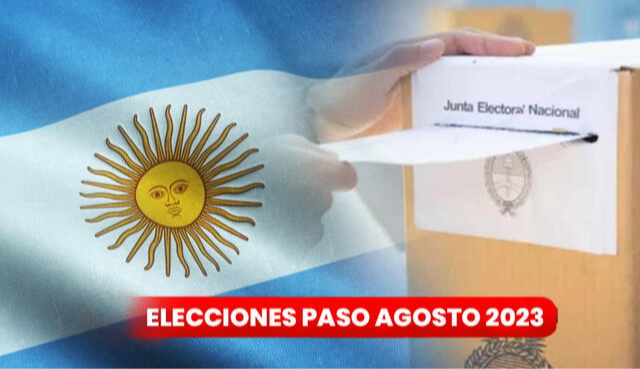
Argentines go this Sunday to the Primary, Open, Simultaneous and Compulsory Elections, called PASO
By Roberto Morejón
In a tense atmosphere due to the economic crisis, Argentines go this Sunday to the Primary, Open, Simultaneous and Compulsory Elections, called PASO, to define the candidates of each political party for the coming October elections.
Argentines determine the lists of each party and filter those who will be able to present themselves at the polls weeks later.
This next Sunday appointment is of a primary nature, where citizens may vote for the candidates of any grouping, takes place all over the country and is mandatory.
With 26 presidential pre-candidates from 15 political groups, alliances and parties, Argentines have several alternatives, although Unión por la Patria and Juntos por el Cambio are the most popular.
Unión por la Patria, Peronist and leftist, bets on Sergio Massa, Minister of Economy, and Agustín Rossi, Chief of Cabinet of the government, in rivalry with Juan Grabois, social leader, and the sociologist Paula Abal.
On the opposite side is the right-wing coalition Juntos por el Cambio (Together for Change), with Patricia Bullrich, former Minister of Security, and Luis Petri, congressman, in emulation with Horacio Rodríguez Larreta, mayor of Buenos Aires, accompanied by the governor of Jujuy, the controversial Gerardo Morales.
To get an idea of the conservatives' pretensions, it will be enough to say that their campaign is based on personal attacks and manipulation of economic indexes.
The option of the extreme right, Javier Milei, who has no internal opponent with his entity La Libertad Avanza, strikingly followed by the ultra-right-wing Brazilian ex-president, Jair Bolsonaro, cannot be overlooked.
The candidates of Unión por la Patria face a high degree of controversy due to citizen insecurity, high inflation and the increase of poverty up to 40 percent.
Those enrolled in the ranks of the ruling party insist on having proposals to face the difficulties, accentuated by Argentina's imperative to pay the loan received from the International Monetary Fund when President Mauricio Macri was president.
After multiple meetings, the government renegotiated the pact and the organization will disburse 7.5 billion dollars in exchange for tough fiscal goals that will require fewer public expenditures. The agreement with the IMF occupies so much space in the political scenario that it affects the prospects of the pre-candidates, since Macri left Argentina tied to the lending organization.

